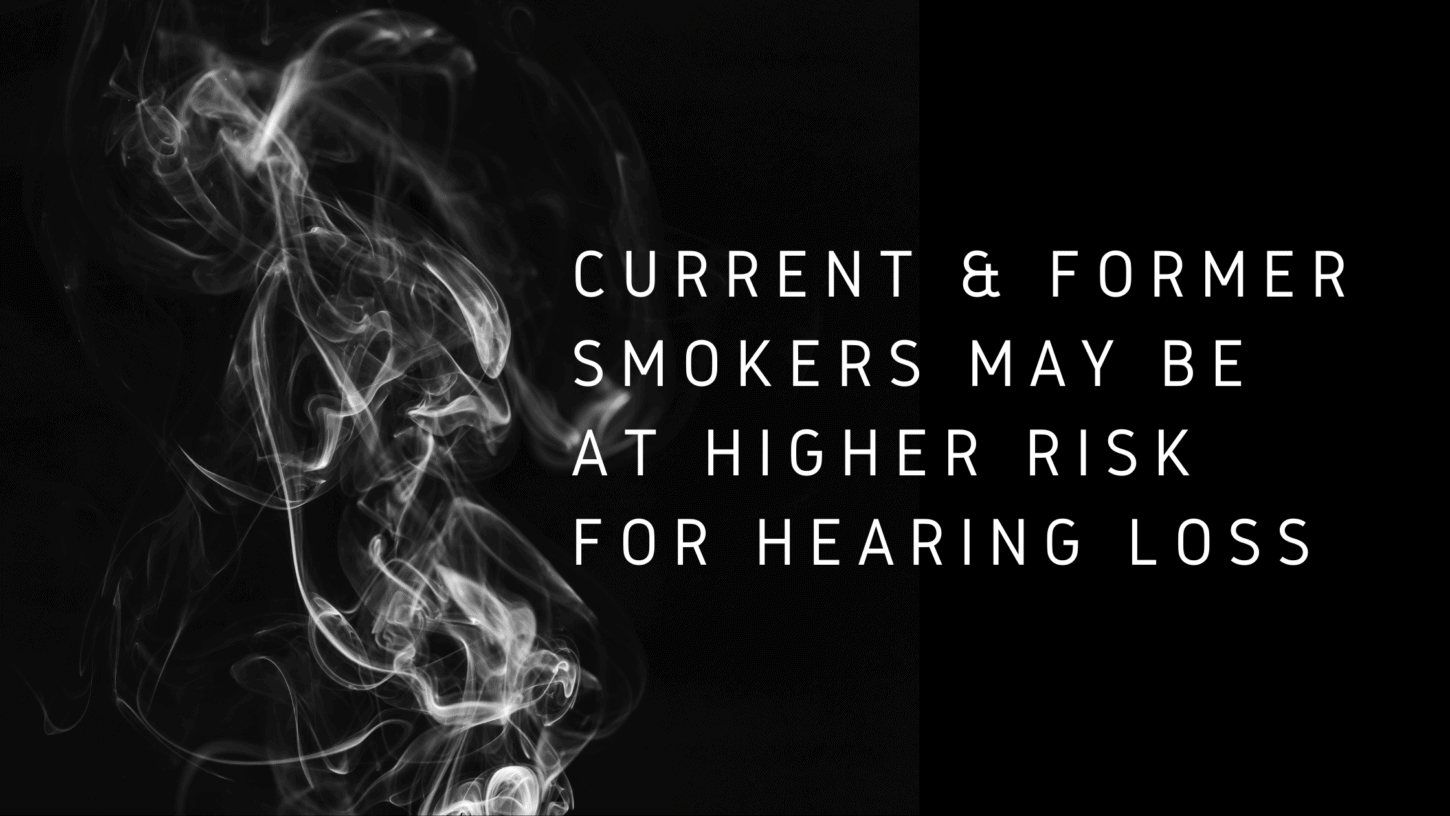Are you a smoker? Maybe you used to smoke, but you recently quit. Smoking is linked to a number of negative health outcomes, including cancer, heart disease, high blood pressure, a weakened immune system, and even diabetes. New research shows that current and former smokers may be at higher risk for hearing loss.
Recent Japanese Study on Smoking
A recent Japanese study, published in the Nicotine & Tobacco Research journal, collected data from over 50,000 people aged 20 to 64. They asked questions about their smoking habits and measured their hearing, both at the beginning of the study and again several years later. The study concluded that smoking increases the risk of hearing loss. And those who smoked the most were the most likely to have hearing loss.
The study found that participants who smoked up to 10 cigarettes per day were 40% more likely to develop hearing loss than non-smokers. Those who smoked 11 to 20 cigarettes per day were 60% more likely to have hearing loss. And most shocking of all, people who smoked more than 20 cigarettes per day were 70% more likely to develop hearing loss!
Recent American Study on Smoking
Another recent study published in the American Journal of Medicine collected data from the Nurses’ Health Study. This American study also found that hearing loss was more prevalent in smokers and past smokers when compared to non-smokers. Rates of hearing loss were higher among participants who smoked the most cigarettes per day.
This study found that current smokers had a high risk of hearing loss. And those who smoked more than a pack a day were the most likely to develop hearing loss. Past smokers also had a slightly higher risk of hearing loss, especially if they had smoked a lot. However, people who stopped smoking over 10 years previously didn’t have an increased risk of hearing loss.
Smoking and Sensorineural Hearing Loss
Smoking is linked to sensorineural hearing loss, caused by damage to the cells in the ears or brain. Smoking decreases the levels of oxygen in the blood, as well as contributing to high blood pressure. Oxygen is vital for every cell in your body, and low oxygen levels can harm your cells. The delicate cells in the ears are easily damaged by oxygen deprivation, and once these cells are damaged they can’t be repaired. High blood pressure also affects the ears and causes even more damage to the cells.
As the cells in the ear are damaged or die, they stop picking up on the sounds around you. These cells can’t send signals to the brain, and you experience hearing loss.
Smoking and Conductive Hearing Loss
Smoking can also cause conductive hearing loss, or hearing loss from damage to the ear. Smoking irritates the lining of the back of the throat and can even damage part of the Eustachian tube that connects the middle ears to the throat. Smokers are more likely to have ear infections that can damage the middle ear or ear canal.
Why Quitting Smoking Is Important
Both these studies reported that the risk of hearing loss decreases when people quit smoking. So putting out that cigarette really can protect your hearing health. The Japanese study concluded that “quitting smoking virtually eliminates the excess risk of hearing loss, even among quitters with short duration of cessation.” Moderate or occasional smokers can see this decreased risk right away, but heavy smokers may still have a higher risk of hearing loss several years after quitting.
When you quit smoking, your cells start to get the oxygen they need. Your blood pressure lowers, and circulation improves. This is great for your overall health as well as for your ears.
Looking After Your Hearing Health
Have you noticed any signs of hearing loss? Whether you’re a current or former smoker, you may have a higher risk for hearing loss. If you notice any changes in your hearing, the best thing you can do for your ears is to book a hearing test. Treating hearing loss as soon as possible will help you hear clearly and reduce the risk of further hearing loss. We offer comprehensive hearing tests and modern hearing aids you’ll love. Contact us at one of our many locations today!


